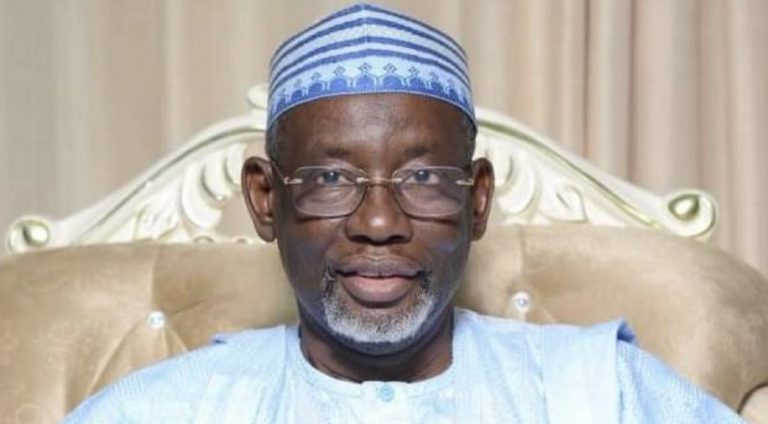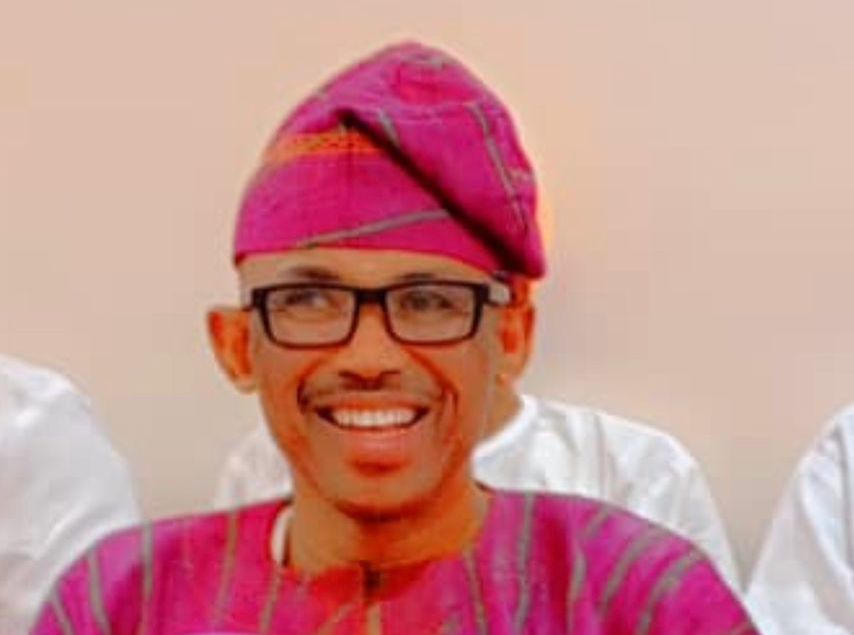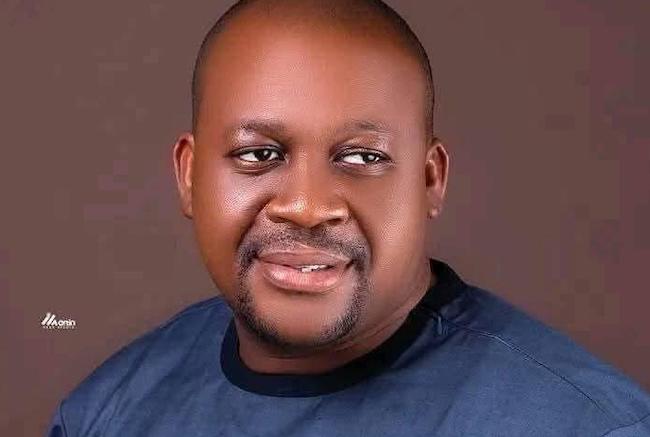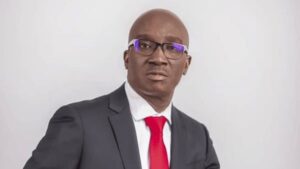How patients, employers harass us for sex —Female health workers
Some female health workers in the country have described how their patients harass them for sex.
They also allege that apart from their patients, relations of the people they treat, as well as their superior male officers and employers also press them for sex.
The United Nations describes sexual harassment as unwelcome sexual advances, requests for sexual favours, attempted rape or sexual assault, deliberate touching, sexual looks, catcalls, turning work discussions to sexual innuendos and touching or rubbing oneself sexually around another person.
Speaking to our Correspondent, a 35-year-old nurse working in a private facility described how unwanted solicitations for sex by her superior officers forced her out of job in two hospitals she worked with.
Nneka (surname withheld) told PUNCH HealthWise that she has had her fair share of sexual harassment and does not like discussing it.
“Working in a hospital as a female nurse is tough. You tend to get unwarranted requests from patients down to their relatives. The worst of them is the male colleagues you work with, most especially the older consultants.
“On a scale of 10, I will rate the prevalence of sexual harassment in the health sector on a scale of seven. They range from subtle advances to inappropriate touches, vulgar expressions and all,” she said.
Nneka said her first experience of such harassment came from a medical doctor at her first place of work.
“I didn’t find it funny. He would corner me at every opportunity despite my unequivocal refusal. This was followed by incessant and inappropriate brushing of chest and bum. I left the job in frustration.
“Even at my second job, I still got passes from both doctors and patients. Mercifully, my marriage has put a halt to the nonsense,” Nneka said.
Continuing, she said, “If you asked me, I’d say about 90 per cent of female caregivers have one story to tell. There’s no facility I have worked that a female colleague or me didn’t experience the problem,” she said.
The nurse also narrated a scenario that happened in her last clinic involving the relative of a patient who was bent on having a sexual relationship with her.
“A man once asked me to take up the responsibility of a home caregiver to care for his aged mother. After the home service, he insisted on driving me home. That was how the inappropriate touching began. I protested but he attempted to intimidate me because of his position in my workplace.
“I called his bluff and vowed to discontinue the home care service if he didn’t allow me to focus on my job.
“Eventually, I had to stop visiting the woman to avoid coming in contact with him,” she added.
‘46.59% of healthcare workers’ sexual harassment comes from patients’
According to online platform BMC Nursing in a survey published on July 13, 2020, sexual harassment is a complex and occupational hazard in the health sector with nurses experiencing it more than other employees.
The survey states that 46.59 per cent of sexual harassment comes from patients, 41.10 per cent by physicians, 27.74 per cent by patients’ family, 20 per cent by nurses and 17.8 per cent were by other co-workers.
The BMC Nursing noted that continual harassment consequently affects the mental, physical, emotional, social and psychological health of female nurses.
Meanwhile, a senior official of the National Association of Nigerian Nurses and Midwives who craved anonymity told PUNCH HealthWise that sexual harassment against healthcare workers was not frequent in public hospitals.
She, however, said most victims of sexual harassment are auxiliary, young nurses.
“Sexual harassment is more rampant in private practices and all these mushroom health facilities.
“These are places where quacks and unqualified girls being paraded as auxiliary nurses are sexually abused. These girls undergo serious slavery in those glorified clinics.
“How can you be paying those young ladies N15,000 and still be sleeping with them?” she quipped.
According to her, some private hospital operators find it easy to manipulate young nursing quacks because the victims know that the prospects of getting employment in other facilities are slim.
She emphasized that sexual relationships in public hospitals are mostly done on consensual grounds.
“I make bold to say the type of sexual advances you see in government hospitals are consensual. This only happens between younger nurses who are new recruits and eager to get favour from their superiors.
“They are usually more vulnerable in the first two years before they are officially confirmed as staff. But once their appointments are confirmed, nobody can do them anything.
“Most of the time, it is usually between the senior doctors and newly recruited nurses. In fact, many start making advances at the girls during the recruitment exercise with promises to facilitate the appointment.
“Some of these ‘ogas’ have no such clout but merely deceiving these young nurses,” she said.
The matron, who works in one of Lagos General Hospitals, said it was hard getting away with sexual harassment because once a petition is written against an official, he will be invited before a panel to defend himself. “This usually puts people on their toes,” she said.
Recalling her experience, she said, “As a young nurse, I resigned from two hospitals over this sexual harassment matter. Many of us were redeployed to local government clinics because we refused to accede to such requests. Anyway, that was way back in 1985,” she stated.
Health workers’ individual assessment of sexual harassment varies
A public health physician, Dr. Bola Bakare, also shared her experience, saying the definition of sexual harassment is relative to each individual.
“It is a sensitive issue I don’t like talking about. For instance, there are things some of us may see as sexual harassment and other health workers may not see anything wrong with them. Some are even okay with catcalls and sexual innuendoes, etc,” she said.
The physician recalled an incident she described as her first experience with such harassment after her residency training.
“I was posted to University College Hospital, Ibadan, where I had the opportunity of working in a male-dominated medical team. At first, it was normal getting teased about my look and mode of dressing by the male folks.
“However, I had to draw the line one day after a consultant went too far by tapping me on the butt. My reaction was immediate. I slapped him and further threatened to report him to the hospital management.
“If such behaviour were from patients, it would be understandable. Not from a colleague who should know better. Yes, sexual harassment still happens in the health sector,” Bakare noted.
Secretary of Lagos chapter of the Nigerian Medical Association, Dr. Ime Okon, however, called for caution, saying unless there is evidence, it is hard to say sexual harassment is rife in the system.
The epidemiologist said she had heard quite a few of such reports, confessing that she finds it difficult to tell the magnitude of the problem, since most cases were based on hearsay.
“But I won’t deny that I have been hearing about such occurrence in other places.
“Complaints about health workers getting passes from patients and colleagues are not new. It is quite a sensitive topic that some people who pass through it will usually be ashamed to discuss.
“I mean it is bad enough that they have gone through such a psychological and traumatic experience. Coming to narrate such experience again in form of complaint might be another traumatic experience for them,” she said.
Sexual harassment grossly underreported
Okon, however, said sexual harassment among healthcare workers is an underreported issue because people are always ashamed to talk about it.
She counselled people passing through such harassment to write a complaint letter and drop in any of Servicom Boxes in government hospitals or report directly to the Medical and Dental Council of Nigeria if the issue has to do with doctors.
“Hopefully, it will stop if we can reassure and encourage people to talk about it openly without fear of intimidation or other untoward consequences,” she said.
Young female pharmacists not spared
In an exclusive interview with our correspondent during the World Women Pharmacists Day, Chief Executive Officer of Advantage Health Africa, Mrs. Abimbola Adebakin, said female pharmacists in community and hospital pharmacies also face different forms of sexual harassment.
“It is common to get men making unwanted passes at young female pharmacists at the point of duty. This, of course, is common in healthcare — female doctors and nurses, generally, any female giving care, are exposed to this. It behoves on men to behave themselves and treat all women with respect.
“The female pharmacist has a job to do — providing professional-level care. If anyone wants a relationship, let it be outside work hours especially if the lady indicates interest.
“Co-workers in the health space and clients interacting with female pharmacists need to understand this on a deeper level and stop the harassment,” she warned.
Adebakin also said she believed that sexual harassment is underreported, noting that there is a policy in place at Advantage Health Africa which gives the female staff a sense of confidence that something will be done anytime such issue comes up
“I think more employers need to do the same. And back the bark with bite!” she said.
MDCN can only act where there is established evidence
Speaking on why it is hard convicting erring health workers over sexual harassment, President of the Nigerian Medical Association, Prof. Innocent Ujah, said unless an evidence is established, the body cannot take any action.
“First, it has to be established that the victim was actually harassed sexually. For instance, if it is an attempted rape or a subtle threat for turning down sexual advances, it can be formally reported to the establishment if it happens in the hospital.
“If nothing is done, it can be reported to the Police. If it happens in the workplace, that is breaking the ethics of the profession. It can then be reported to the MDCN, at least, from the ethical point of view.
“But if it is a nurse or pharmacist, such case is referred to their respective councils,” he said.
Ujah said it was wrong of anybody, especially victims of sexual harassment in the healthcare system, to believe that the NMA would overlook the matter if it receives a petition to that effect.
He also encouraged any healthcare worker who is experiencing sexual harassment to speak up without fear of losing their jobs.
“You cannot just write a letter of sexual harassment complaint without evidence or affidavit.
“The MDCN will take it only when there is an affidavit attached. Once that is done, it will go to MDCN investigating panel to establish the veracity of the case.
“And once prima facie is determined against the offender, the case will be moved to the tribunal for adjudication.
“As I said earlier, it can only be termed ‘harassment’ if the person involved does not agree to the advances.
“Whether it is a female or male health professional, the fear of losing one’s job over such cases should not arise. I agree, it is a very tricky and sensitive issue,” Ujah added.
PUNCH













Post Comment